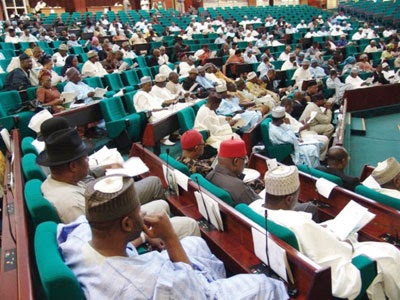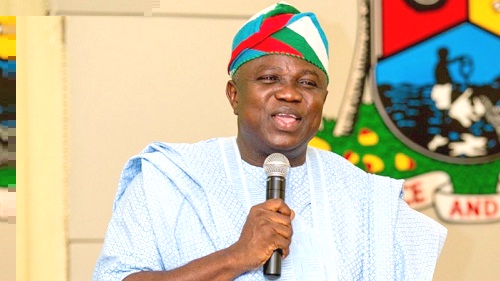Author Box |
 Nigerian Peopolitics Nigerian PeopoliticsI creatively and constructively discuss pressing National Political and Economic Issues that affect all Nigerians. Joined 9 years ago From Abuja, Nigeria Total Articles 85 Recent Articles From Author # Messi provokes outrage in Egypt # Lagos to cancel restriction during sanitation # When US election becomes Nigeria’s social media issue # Web tips for international expansion Order your favourite books online now, Save the stress & Pay online or with cash at Your Doorstep! |
 |
|
Home >>>Business and Economy Making mobile technology a catalyst for development By Nigerian Peopolitics Mar 29, 2016  Despite the fact that mobile technology has evolved globally, Nigeria lags behind other nations amid glaring opportunities, writes OZIOMA UBABUKOH The coming of mobile technology to Nigeria in 2001 will continue to be referenced not only because it made communication easier, but for the fact that it has opened up opportunities for commerce and business activities. In terms of employment and revenue generation, analysts are unanimous on the massive impact of the Information and Communications Technology sector. With regard to changing the landscape in advancing mobile technology among its peers across Africa and indeed the world, experts say that Nigeria has, no doubt, striven to encourage and achieve better digital inclusion across the country. According to them, these giant strides in developing telecommunications have not gone unnoticed. According to the 2015 edition of The Report, published by Oxford Business Group, Nigeria has become the largest telecoms market in Africa and Middle East, with more than 140 million active telecoms subscribers in 2015. As is the case elsewhere in frontier and emerging markets, mobile subscribers accounted for over 99 per cent of this total, with virtually all of that segment controlled by the countrys four Global System for Mobile Communications operators: MTN Nigeria, Airtel Nigeria, Globacom and Etisalat Nigeria. The report further revealed that the rise of Nigeria as one of the continents leading telecoms markets was synonymous with the rapid expansion in mobile services. From just four million in 2003, the countrys mobile has grown by more than 1000 per cent to the current level (140 million). Nigerias immediate past Minister of Communications Technology, Ms. Omobola Johnson, noted that between 2011 and 2014, over 3,000km of terrestrial fibre was laid and over 10,000 2G and 3G base transceiver stations were installed, bringing in 40 million voice subscribers and 28 million data subscribers. She said, While this is a substantial addition to telecoms infrastructure, given increased demand for voice and data services as well as more affordable access, we need to deploy this infrastructure faster and at cheaper rate. For instance, as part of these massive investments, MTN Nigeria in January 2003 inaugurated the first phase of its digital microwave transmission backbone called the Yello Bahn. Constructed at an initial cost of $120m, the first phase of Yello Bahn spanned 3,500 km. The second phase, which started in July 2003, extended the project to cover a total of 4,500 km. The length of the entire digital microwave transmission backbone currently stands at 11, 400km. This interconnects with Cameroon in Borno and Cross River states and with Niger Republic in Sokoto State. In terms of distance and capacity, this makes the Yello Bahn Africas most extensive digital transmission infrastructure, which is said to have significantly contributed to enhancing call quality on the networks. This also included the deployment of fibre optic cables across the country to boost the transmission capacity on the network. A total of 16,000 km (backbone, metro, NFE) has been covered with fibre-optic cables across Nigeria. This makes it the longest privately-owned fibre-optic cable ever laid in Africa and definitely one of the most modern. The rapid growth of the telecoms industry over the past decade has had a major impact on the Nigerian economy. According to The Report, as of August 2014, the sector accounted for 8.5 per cent of Nigerias Gross Domestic Product up from 5.7 per cent in 2011 and just 1.1 per cent in 2003. It is not then surprising that the sector contributed about 35 per cent of an estimated $45bn FDI in Nigeria between 2001 and 2011. Speaking during the release of the financial report for 2015, the Chief Executive Officer of MTN Nigeria, Mr. Ferdi Moolman, said that MTN, as a major Nigerian operator, contributed 4.5 per cent of the total corporate taxes. And in terms of GDP, about four per cent having invested over $16bn in Nigeria over the past 15 years of the companys operations in the country, Moolman said. He said, We have put in place the operating and management structure, as well as critical investments, to ensure that we improve our competitiveness in 2016. MTN is an enabler of socio- economic growth in Nigeria. Our infrastructure supports critical sectors of the economy, from financial services to oil and gas and commerce. We remain committed to Nigeria and will continue to invest in the country through our operations. Critically, the ICT sector has grown considerably but more is required to further make more solvent this viable backbone of the Nigerian economy. Analysing the possibilities, a communications expert and lecturer, Dr. Dele Odunlami, believes there must be a sustained synergy between the government and the private investors who have deliberately invested in infrastructure and business acumen that once catapulted the Nigerian economy to the number one position in Africa. Ordinarily, the onus is on the government to provide technology framework, in terms of necessary infrastructure, for any sector to perform optimally. However, that the private sector, particularly in the telecoms sector, deems it fit to venture into infrastructural development must be commended. Whichever way we analyse the situation, these investments are benefiting Nigerians both in the short and long run, Odunlami said. Also speaking on diversification and the need for Foreign Direct Investment, the Director-General of the Lagos Chamber of Commerce and Industry, Muda Yusuf, said there was an urgent need to improve the capacity of the Nigerian economy to develop the non-oil sector through the creation of an enabling environment for investors in those sectors. He said, The key is to improve the productivity and competitiveness of these sectors. We need to tackle issues of cost of doing business; better investment in infrastructure; funding issues; patronage of made in Nigeria products; policies that are investment-friendly; strengthening of regulatory institutions, among others. As a strategy, Odunlami advocated a three-point agenda, which the government could improve upon to encourage more investments in the non-oil sector. The first is that the government should provide enabling laws that guarantee investment. For instance, the action of the National Assembly on the MTN-NCC fines calls to question our strategy for encouraging investment in these critical times. I will advocate that our legislators should look into the books and what is happening around the world and promulgate enabling law for a conducive business environment rather than hounding the existing ones, Odunlami said. The second, according to Odunlami, is that government should attract and support these private investments through rebates. The third, he said, is a superstructure in terms of policy formulation and implementation that will transcend any administration. He added, The President Muhammadu Buharis administration has been consistent in its determination to grow the non-oil sector. The opportunities are abundant. However, the government across all arms must demonstrate their willingness to nurture this catalyst for economic growth. Copyright PUNCH. Contact: editor@punchng.com
|
|||||
If you need to re-publish this ARTICLE, please cite this article - (https://cordly.ng/blog/making--mobile-technology-a-catalyst-for-development-24180/) and the Writer (Nigerian Peopolitics) Do You Find This Article Helpful? | |||||
|
Article Tags: Making mobile technology a catalyst for development | |||||
| Article Source | |||||
 About Nigerian Peopolitics About Nigerian Peopolitics | |||||
| Social Sharing | |||||
|
If You Enjoyed This Article; Then, Share It On Your Social Network
| |||||
| Post Comment | |||||
|
| |||||
| Article Comments | |||||
|
No comment found! Be the first to share your thoughts on this article! | |||||
| Related Articles | |||||





